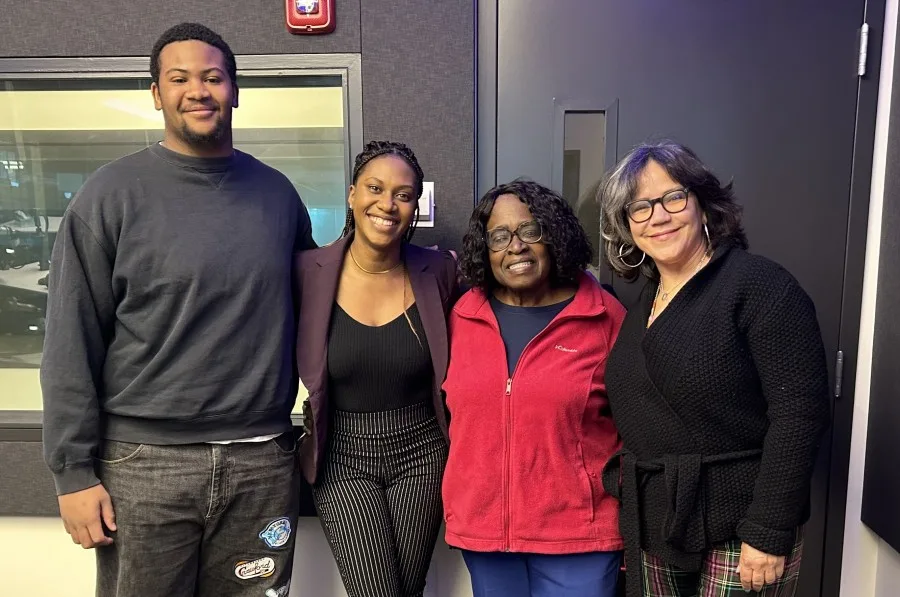In 2019, Evanston’s city council passed a resolution to fund reparations, using revenue from a sales tax on recreational cannabis. Robin Rue Simmons, a former alderman for Evanston’s historically Black 5th Ward, launched the initiative.
More than 600 people applied before the November 2021 deadline, according to city officials.
Black residents were eligible under three categories:
-
As “ancestors” who lived in Evanston sometime between 1919 and 1969
-
As “direct descendants” of an “ancestor”
-
By submitting evidence of housing discrimination due to the city’s practices or policies after 1969
Who has received grants so far
Evanston prioritized ancestor applicants, and at least 117 have received funding as of January 2024. The reparations committee expects to serve at least 80 direct descendants this year, according to the Chicago Tribune.
At first, reparations had to be used for down payments, mortgage assistance or home repairs, but Evanston council members voted to allow direct cash payments in March 2023.
Each person who is approved is eligible for $25,000.
How Evanston fits into the national landscape
The idea of reparations is not new — but the U.S. government has only rarely paid them out.
Some lawmakers have pushed for a federal commission on the topic, but one has yet to be established.
Meanwhile, other cities and states are working on plans of their own. California created a task force to develop reparations proposals in 2020. That same year, the city council in Asheville, North Carolina, voted to support reparations.
But Evanston is still the first municipality to compensate residents.
Oral history project for Evanston reparations recipients
A new project aims to capture the stories of those who have received reparations through Evanston’s program and connect a generation of young people to their elders.
High school students from Evanston Township High School, Niles North High School and New Trier Township High School are being trained to interview about a dozen reparations recipients.
The resulting project materials will be archived at Shorefront Legacy Center, which preserves Black history on the North Shore.
Reset spoke with Shorefront executive director Laurice Bell, Evanston reparations recipient Elizabeth Cox and Evanston Township High School student Maasai Gentle.

Talk about the power of pairing together elders with students.
Bell: This program is Black-led. We have mostly Black kids coming to talk to their elders… It was important that we tell our own stories, that we learn our own stories and that we can go back and forth.
There’s a magic. We got into the room, a lot of the recipients were there, and they were to come for this initial meeting, and then at the end, many said, “Can we keep coming back?”
What do you hope to learn?
Gentle: Reparations are something that needs to happen across the country. I want to learn what we can do to improve them — because at the end of the day, something happened to them… So it’s all on us to give back to them and make them feel whole.
I still am feeling the effect of (past) events, but I’m not in it. I’m not getting firsthand experience on what it was like. So learning that can help me move forward and affect the next generation and help make our world a better place.
What do you want to pass on to the next generation? What did you find out about your family?
Cox: I did find out that we weren’t really treated fairly — especially my parents. There’s one instance where they wanted to buy a home. The landlord was Caucasian… and he said, “You can rent-to-buy.” And I don’t know where the money went. I don’t know where (the landlord) went…My oldest brother ended up buying the house himself, but that was in the 60s. Before then, my (mother) was just paying money, and it never came about.
Hearing Ms. Cox tell her story, what feelings does that bring up for you?
Gentle: I feel like I’ve been desensitized, but every time I hear a story, it has the same effect on me. I feel sad, and I feel like something was taken away from us.
I’m always left with this feeling of like, I wonder what would have happened if this didn’t happen to us? Where would we be? Now we’re working to fix these wrongs, but where was this, back then? I’m glad that it’s happening now — but it’s too little, too late.
This is really historic — the first reparations program, but it also has some criticisms. So what kind of nuances are you hoping to capture here, as you record these stories of recipients?
Bell: Each person has a different story. Some will say they really didn’t see a lot of injustice or inequity in Evanston. Some will say they experienced much — that they couldn’t go downtown or to the lake, or be at Northwestern or have equity when they went to high school.
Redlining is real, and it existed in the historically Black 5th Ward…There are many things that have happened, for which reparations could be paid, beyond housing. A lot of the criticisms came around the $25,000 being earmarked for housing, specifically.
(The change to) be able to get that cash payment of $25,000 means something. The program is not necessarily a perfect program, but I don’t know that perfect exists. It’s continually moving and evolving.
This interview has been edited for length and clarity.


